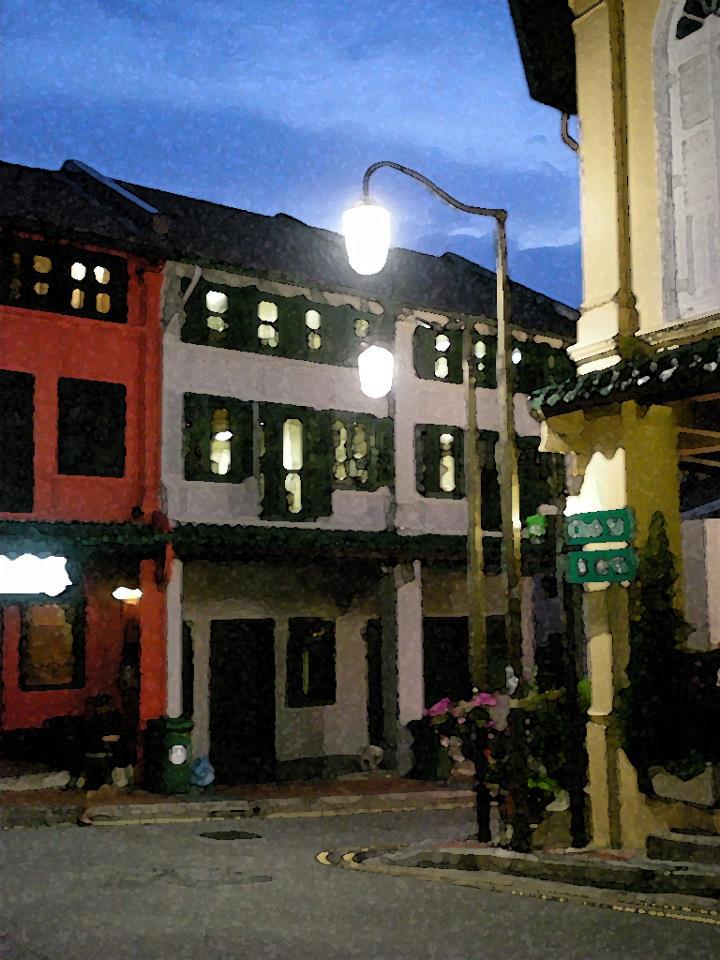Old House at Ang Siang Hill
0Old House at Ang Siang Hill
by Arthur Yap
an unusual house this is
dreams are here before you sleep
tread softly
into the three-storeyed gloom
sit gently
on the straits born furniture
imported from china
speak quietly
to the contemporary occupants
they are not afraid of you
waiting for you to go
before they dislocate your intentions
so what if this is
your grandfather’s house
his ghost doesn’t live here anymore
your family past is
superannuated grim
which increases with time
otherwise nothing adds or subtract
the bricks and tiles
untill re-development
which will greatly change
this house-that-was
dozens of it along the street
the next and the next as well
nothing much will be missed
eyes not tradition tell you this
an extract from Thow Xin Wei who writes of the poet Arthur Yap’s work….
In “old house at ann siang hill”, a similar voice seems to suggest that even tradition is expendable in the pursuit of progress:
so what if this is
your grandfather’s house
his ghost doesn’t live here anymore
your family past is
superannuated grim
which increases with time
otherwise nothing adds or subtract
the bricks and tiles
untill re-development
which will greatly change
this house-that-was
dozens of it along the street
the next and the next as well
nothing much will be missed
eyes not tradition tell you this
In contrast to the opening of the poem, the viewpoint has shifted to that of the civil servant, with the casual disdain for the past, the calculative dismissal, and the firm conviction that “re-development” and change will mean progress; to hold on to the past is merely nostalgic sentiment, an old fashioned belief in “ghosts” that is not congruent with the rapidly modernising social and physical landscape of Singapore.
Interactions between those in authority and those subject to it also feature in Yap’s poetry. In “an afternoon nap”, an “ambitious mother… proclaiming her goodness”, punishes her son for his mediocre grades, while the “embittered boy” proclaims his “bewilderment” and berates her for her “expensive taste for education”. Both proclaim the other’s “wrongs”. It is tempting to read this poem as a metaphor for the relationship between government and citizens in Singapore, especially given the paternalistic character of a government which institutes policies regarding its citizens’ child bearing, hygiene and courtesy habits.


Comments